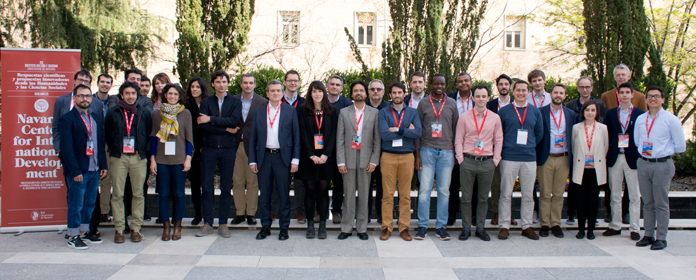The Navarra Center for International Development of the ICS, best university think tank in Spain for the fifth year in a row
NCID, which conducts research to find solutions to extreme poverty, has been selected as one of the 60 best think tanks in the world.

PHOTO: Alejandro Amador
The Navarra Center for International Development (NCID) of the University of Navarra is the best university think tank in Spain and issue 54th in the world, according to the 2019 Global Go To Think Tank Index Report prepared by the University of Pennsylvania (USA). This is the fifth consecutive year that the NCID appears in this ranking, where it has risen three positions since 2017 and is the only Spanish center in that category.
In addition to confirming a trend of improvement, this position places the NCID, which belongs to the University of Navarra's ICS, as a relevant Institute for Culture and Society (ICS) of the University of Navarra, as a relevantresearch center with an international profile , together with other think tanks that are part of leading universities worldwide.
The Global Go To Think Tank Index Report 2019 has analyzed more than 8,100 centers from research. More than 12,800 journalists, public and private funders, and policymakers have collaborated in the analysis. Selection criteria have included topics such as quality of staff, academic performance and impact, and institutional relations, among others.
This ranking means for NCID a boost to further improve the work and impact of the research, as well as its international presence, overall contributions and media presence, plus alignment with the United Nations Sustainable development Goals (SDGs).
assessment impact of policies and programsThe NCID is a research center that brings together an interdisciplinary team of economists, political scientists, journalists, historians and urban planners. Its efforts are focused on contributing to policies to alleviate extreme poverty in Sub-Saharan Africa, Central America and Southeast Asia. The center conducts both quantitative research in the field of Economics of development, and qualitative research in the field of political science.
Their main areas of study are conflict, governance, Education, democracy, urban planning and institutional development , among others. To this end, they use techniques such as discontinuous regression design , fractional cointegration, differences in differences, etc. In turn, their goal is to contribute to the public discussion on development through general contributions, including qualitative trend analysis, book reviews and country reports on development.




